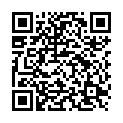|
|
|
| Module code: WIBb21-370 |
|
|
15SU (15 hours per week) |
|
2,5 |
| Semester: 3 |
| Mandatory course: yes |
Language of instruction:
German |
Assessment:
Presentation
[updated 11.06.2025]
|
225 class hours (= 168.75 clock hours) over a 15-week period.
The total student study time is 75 hours (equivalent to 2.5 ECTS credits).
There are therefore -93.75 hours available for class preparation and follow-up work and exam preparation.
|
Recommended prerequisites (modules):
WIBb21-270
[updated 12.11.2025]
|
Recommended as prerequisite for:
WIBb21-700 Management and Leadership
WIBb21-890 Bachelor Thesis
[updated 12.11.2025]
|
Module coordinator:
Studienleitung |
Lecturer:
Lehrbeauftragte der htw saar
Lehrbeauftragte
Professoren der Fakultät
[updated 12.11.2025]
|
Learning outcomes:
After successfully completing this module students will:
- be able to familiarize themselves with a scientific topic, structure it in terms of time and content, and document their findings objectively and comprehensively.
- be able to implement procedures for systematic source searches, source evaluation, and source analysis, and systematically manage sources.
- be able to apply common citation techniques and rules of academic work.
- be able to present the findings of their paper in a concise and comprehensible manner in a short presentation and defend them in a subsequent discussion.
- be familiar with the consequences of plagiarism.
[updated 11.06.2025]
|
Module content:
- Introduction to academic work
- Things to do before you start
- Researching, evaluating, and managing sources
- Structuring the approach and the paper
- Layout of the paper
- Citation techniques
- Creating and presenting an academic paper
[updated 11.06.2025]
|
Teaching methods/Media:
Lectures, seminar-style teaching, digitally supported teaching,
self-study.
[updated 11.06.2025]
|
Recommended or required reading:
- Köhler, C. (2020): Basiswerkzeuge zur Erstellung wissenschaftlicher Arbeiten. Wiesbaden: Springer Gabler,
- Corsten, M. & Corsten, H. (2017): Schritt für Schritt zur Bachelorarbeit. München: Vahlen
- Theisen, M. R. (2013): Wissenschaftliches Arbeiten. 16. Auflage, München: Vahlen
- Ebster, C., & Stalzer, L. (2013): Wissenschaftliches Arbeiten für Wirtschafts- und Sozialwissenschaftler. 4. Auflage, Wien: UTB
- Currently valid guidelines for writing academic papers at the Business School
[updated 11.06.2025]
|

